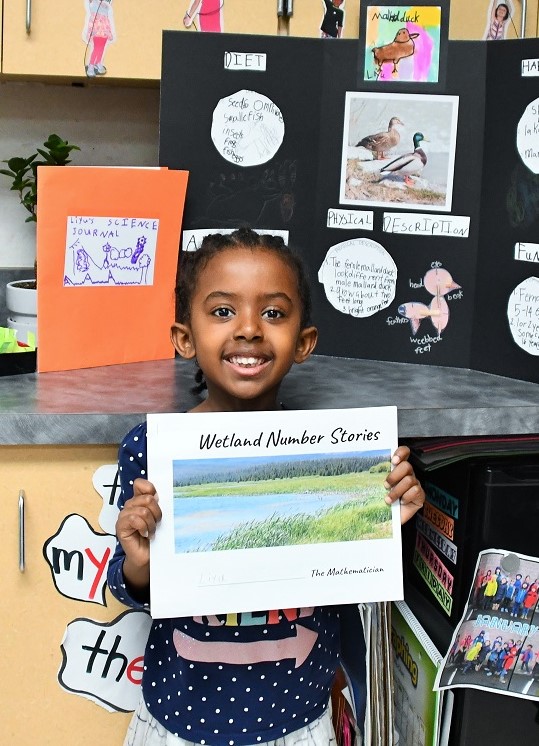Early Childhood (PS, PK, K)
Program Philosophy PS & PK
Our program is framed by overarching essential questions while leaving room to be flexible and responsive to children's interests and providing a solid curricular foundation of math, literacy, and social-emotional learning.
Program Philosophy K
Kindergarten at Evergreen is an interdisciplinary program that blends challenging academics with project-based learning in an environment rich in joyful, open-ended discovery and wonder. Our curriculum helps children develop strong foundational knowledge and skills that they can apply across multiple contexts. These skills, coupled with their boundless curiosity, allow them to tinker with possibilities, persist through challenges, and collaborate with others. Evergreen kindergartners explore their identities, discover each other's family cultures, contribute to the community, and identify and solve problems that matter to them. In doing so, they see themselves as agents of change for a more just and equitable world.
We teach our youngest learners agency, friendship, and a sense of community by fostering key social-emotional competencies.
Preschool and Prekindergarten
Our preschool and prekindergarten programs rely on a “responsive curriculum” cycle: Teachers begin by observing students play, taking note of the ideas they toss out through comments, questions, games, drawings, etc. Then, teachers plan provocations and specific invitations to participate in a related conversation or activity that extends the children’s thinking.
For example, students may be invited to engage in creative play, introduced to rich language and vocabulary, and encouraged to participate in formal conversations about math and literacy concepts. As students engage in these learning experiences, the cycle of observation, reflection, and extension begins again based on how children engage with the new offerings.
Preschool and Prekindergarten Subjects Include:
Cognitive
Emotional
Motor Development
Oral Language
Social
Music
PE

Kindergarten
Just as in preschool and prekindergarten, Evergreen’s kindergarten program continues to support all domains of students’ development. In addition, the kindergarten program serves as a bridge between the responsive curricular model in the early childhood years and the planned curricular model in the older grades. While students still have opportunities to engage in child-directed, play-based learning daily, teachers increase emphasis on interdisciplinary, project-based units that all students participate in. These units focus on a specific topic, such as wetlands or people who are changemakers, and then weave together different subject areas into one cohesive learning experience.
Program Highlight: The Kindergarten Wetlands Unit
Through sustained focus on our local wetlands, students learn a diverse range of academic skills and knowledge. From determining the difference between living and nonliving things and learning to graph quantitative data, to reading and writing final reports about a wetlands animal, these projects support students in meeting grade-level specific learning goals, while engaging students and providing opportunities for individual choice and creativity, as well as a sense of accomplishment that comes with completing a long-term project.
World Language
Kindergarten is also the year when students begin Evergreen's World Language Program. For 12 weeks at a time, subject teachers introduce students to each of the three world languages taught at Evergreen: Spanish, French, and Mandarin. Beginning in first grade, students will pursue one of these languages throughout the rest of their time at the school.
Kindergarten Subjects Include:
- Advisor
- Reading
- Writing
- Math
- Science
- Social Studies
- Technology
- World Language
- Art
- Music
- PE
Who May Be a Good Fit for the Early Childhood Program?
The Evergreen School’s open-ended, inquiry-based academic program is challenging. Students who will be most successful in our early childhood program and best able to thrive in the older grades at Evergreen often exhibit the following characteristics:
- Demonstrates initiative, self-direction, and independence
- Demonstrates eagerness and curiosity as a learner
- Maintains focus and attention, and persists in efforts to complete a task
- Demonstrates creativity in thinking and use of materials
- Cooperates with others in play and learning
- Seeks multiple solutions to a question, task, or problem
- Demonstrates organizational skills
- Retains and recalls information


